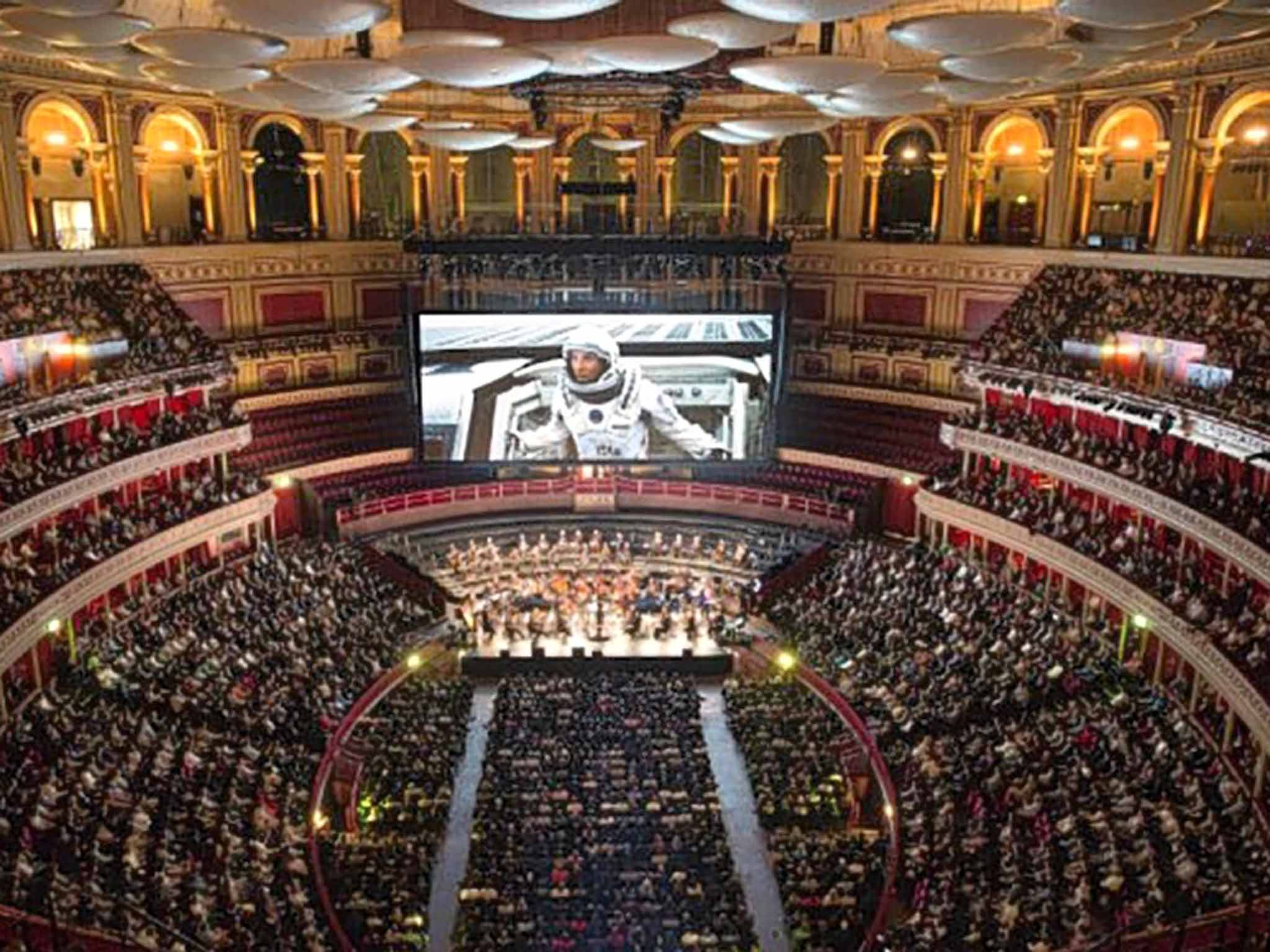Film screenings with orchestras are harking back to a time before talkies
The blockbusting showing of 'Titanic' at the Royal Albert Hall follows The Lord of the Rings, Star Trek and The Godfather

Your support helps us to tell the story
This election is still a dead heat, according to most polls. In a fight with such wafer-thin margins, we need reporters on the ground talking to the people Trump and Harris are courting. Your support allows us to keep sending journalists to the story.
The Independent is trusted by 27 million Americans from across the entire political spectrum every month. Unlike many other quality news outlets, we choose not to lock you out of our reporting and analysis with paywalls. But quality journalism must still be paid for.
Help us keep bring these critical stories to light. Your support makes all the difference.
This week, an iceberg ripped into the Royal Albert Hall. On the big screen, James Cameron's Titanic thundered towards its climax, hell breaking loose as Jack and Rose's future hit the rocks. On the stage below, a 95-piece orchestra and 40-strong choir filled the room with overwhelming intensity: cymbals crashing, strings swelling, horns attacking. All that was missing was for the place to be genuinely flooded.
Over the past few years, live film-score events have taken off. Since its orchestral version of The Lord of the Rings in 2009, the Royal Albert Hall has hosted musical accompaniments to Star Trek, The Godfather and Gladiator (which all sold out). Breakfast at Tiffany's and Back to the Future are coming later this year.
These events are more than the sum of their parts, as the orchestras substantially heighten the films' effects. "I went up to the gallery on the fifth floor during the show," says Titanic's composer, James Horner, the day after the concert (he was due to conduct, but had to pull out due to a shoulder injury). "I was roaming around, I wasn't in a seat. And I was just taken by how into it everyone was. As the last third of the movie began, everybody was holding each other, people were crying. Completely in the magic. Seeing it with a live orchestra, it's something very visceral."
Indeed, these tangible, human experiences offer something hugely revitalising in a world that feeds us our entertainment in the digital form of zeros and ones. And classical orchestras are not monopolising such events. The British electronica band Asian Dub Foundation have played their own new score alongside projections of the Parisian riot drama La Haine, most notably in Paris on the night of 2012's French election. The Pet Shop Boys have performed new music for screenings of Battleship Potemkin throughout Europe. This year, Antonio Sanchez has been recreating Birdman's drum-only score alongside the film in various US venues. "Be nice," he asked of the audience the first time he did it. "It's really freakin' hard!"
The filmmakers, meanwhile, are over the moon. Christopher Nolan took part in an onstage Q&A with the composer Hans Zimmer before Interstellar Live, while James Cameron, onstage for the ovations after Titanic Live, was clearly very affected not just by the concert, but by its rapturous reception.
Of course, the idea is nothing new. Showings of silent films almost always used to feature live music, whether it was just an organist who also attempted a "galloping horses" sound effect, or a full-blown orchestra. The arrival of the talkies in the 1920s was devastating to many musicians, as the need for a movie-theatre band fell away.
"Getting people to cinemas these days is hard enough," says Mark Herbert, the head of Warp Films. In 2012, to celebrate the company's 10th birthday, Herbert oversaw a new live interpretation of Shane Meadows's Dead Man's Shoes in a former Sheffield steelworks. "The films we do don't have massive marketing pushes, so any way you can reintroduce an audience is great," he says. He was touched by the response to the Dead Man's Shoes concert. "I was worried, because we had 2,000 people wanting to rave – the event was going on later till 6am with DJs. We had a huge screen, people were going to be just stood up, and I thought they might just talk, but you could hear a pin drop during the quiet music. It felt real. It felt special."
There's also a sense of barriers being broken. Horner disagrees that there's a growing appreciation for film-score composers, but he loves the accessibility of such events. "So many younger audiences have never been to an orchestral concert, and this is a wonderful middle ground," he says. "It's not Beethoven, it's not Tchaikovsky, it's something people can relate to visually. It's multimedia, it's not just going into a dark room and seeing an orchestra perform." The 5,200 people in attendance for Titanic Live certainly lapped it up, their gushing ovation for the musicians as stirring as the film itself.
Join our commenting forum
Join thought-provoking conversations, follow other Independent readers and see their replies
Comments